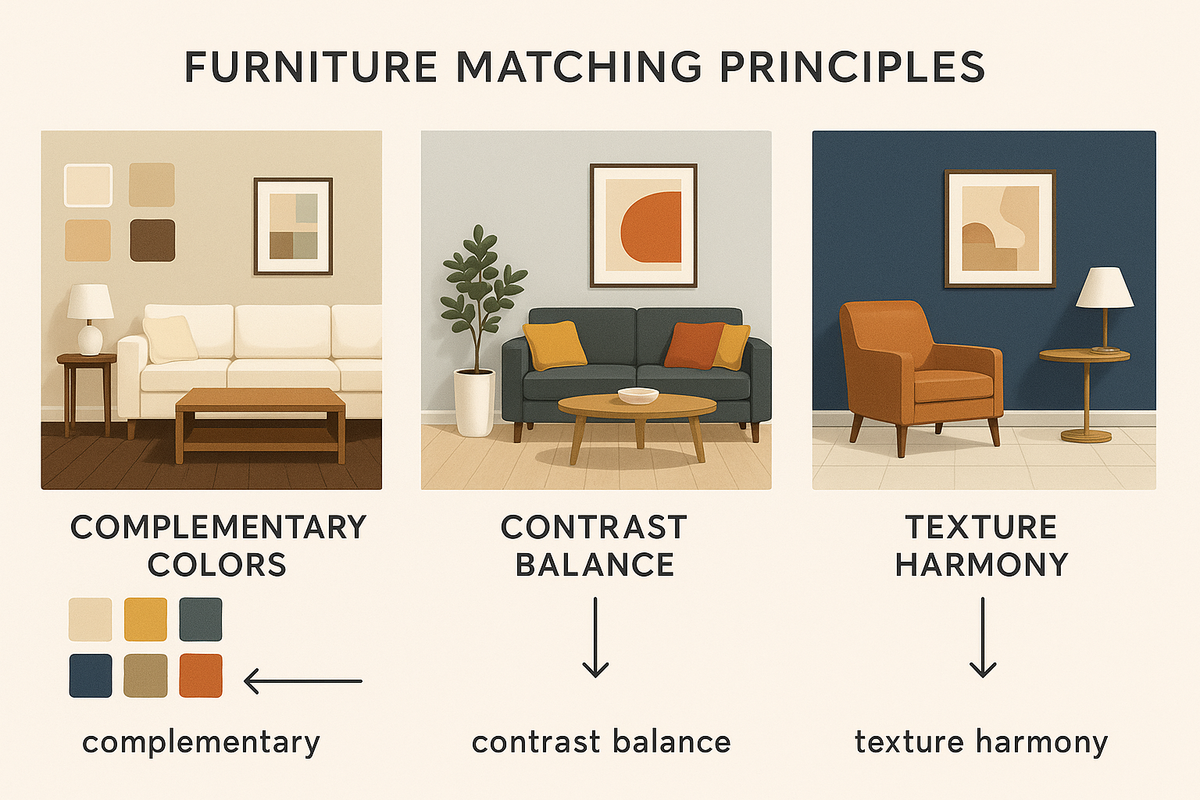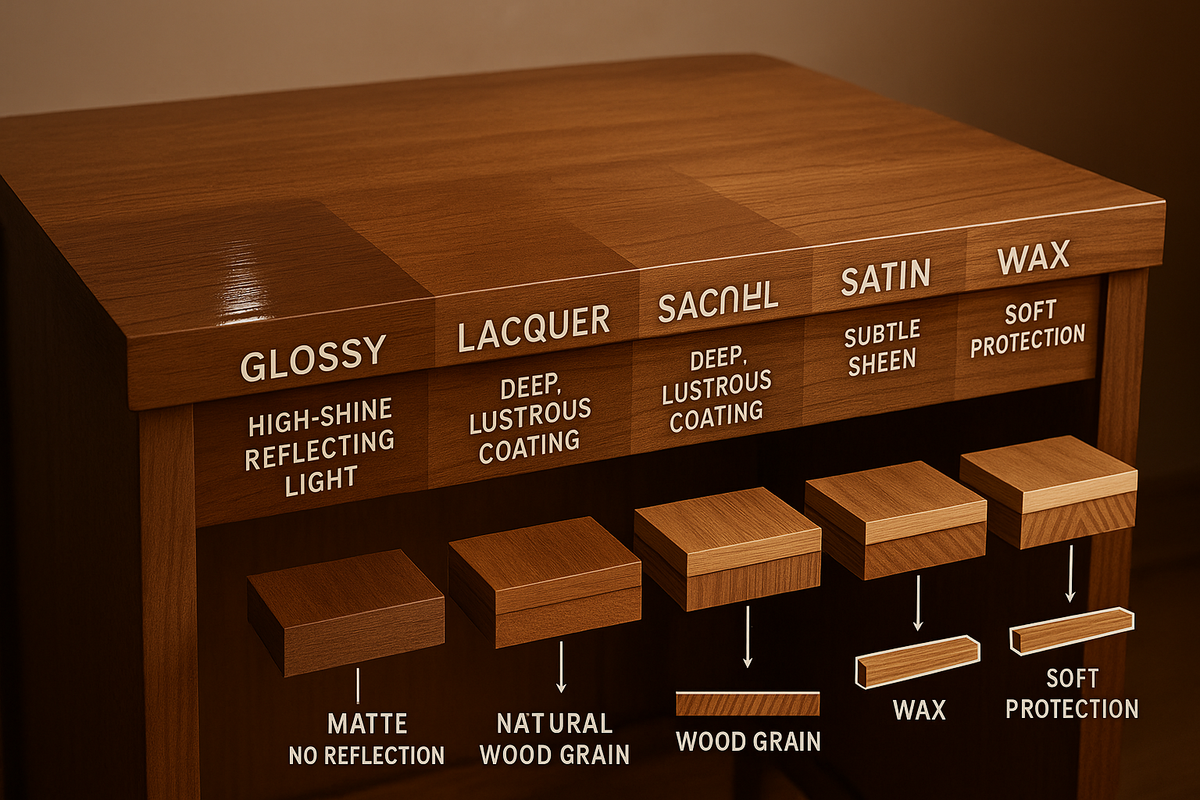1. Determine your needs and preferences:
Before buying a bed, it's important to assess your specific needs and preferences. Consider factors such as your sleeping position, body type, and any specific health concerns. This will help you narrow down the type of mattress that will provide the best support and comfort for you.

2. Research different types of mattresses:
There are various types of mattresses available in the market, including memory foam, innerspring, latex, and hybrid mattresses. Each type has its own unique features and benefits. For example, memory foam conforms to body shape, offering strong pressure relief and motion isolation. It is ideal for side sleepers and couples. Can retain heat unless infused with cooling tech. On the contrary, Innerspring uses coil systems for support with minimal contouring. It is best for stomach sleepers or those who prefer a firmer, more traditional feel. Then comes naturally resilient and breathable Latex. It comes with moderate contouring and faster response than memory foam. Durable and eco-friednly at the same time. Then we have Hybrid, combining foam or latex layers with an innerspring base. It’s good for all sleep positions and minimizes motion transfer while maintaining bounce.
Take the time to research and understand the characteristics of each type to determine which one suits your needs the best.

3. Set a budget:
It's essential to set a budget before starting your search for a bed. Mattresses can vary significantly in price, so having a budget in mind will help you narrow down your options and prevent overspending. Consider the long-term investment value of a good quality mattress for better sleep and overall health.
4. Consider your sleeping position:
Your sleeping position plays a crucial role in determining the type of mattress that will provide optimal support and comfort. For example, side sleepers may benefit from a softer mattress that contours to their body, while back or stomach sleepers may prefer a firmer mattress for better spinal alignment.

Adjustable bed frames offer a range of benefits that enhance both comfort and health. By allowing users to customize their sleep position, such as elevating the head, feet, or setting a zero-gravity position, they can help alleviate common issues like snoring, acid reflux, and back pain. These frames also improve comfort for activities like reading or watching TV in bed and may promote better circulation and reduced swelling, especially in the legs.
They are particularly well-suited for individuals with specific health conditions, such as sleep apnea, GERD, or chronic pain, as well as older adults or those with limited mobility who may benefit from easier movement and positioning. Additionally, couples with differing comfort needs can take advantage of split models, enabling each person to adjust their side independently for personalized sleep support.
5. Test out mattresses in-store:
While online shopping offers convenience, it's always recommended to visit a physical store to test out different mattresses. Lie down on each mattress for a few minutes to get a feel for its comfort level and support. This will give you a better idea of what to expect when you make your final purchase.
How does mattress firmness affect sleep quality for different body types?
-
Lightweight sleepers (<60 kg): Softer mattresses (plush to medium) allow better contouring without excessive pressure on joints.
-
Average weight (60–90 kg): Medium to medium-firm suits most sleep positions, offering a balance of support and comfort.
- Heavy sleepers (>90 kg): Medium-firm to firm provides adequate spinal alignment and prevents sagging. Softer beds may cause poor posture and back pain.
6. Consider mattress size:
The size of the mattress you choose will depend on your personal preferences and the available space in your bedroom. Common sizes include twin, full, queen, king, and California king. Keep in mind that larger mattress sizes may require a larger bed frame and bedding.

7. Check for warranty and return policies:
Before making a final decision, review the warranty and return policies of the mattress you are considering. A good warranty will provide coverage for a reasonable period of time and protect you against any manufacturing defects. Additionally, a flexible return policy will give you peace of mind in case the mattress doesn't meet your expectations.
In the UAE, mattress warranties typically range from 5 to 15 years, depending on the brand and model. It generally covers manufacturing defects such as structural failure or sagging beyond a certain depth, often more than 1.5 inches. For instance, Tempur-Pedic, available through PAN Emirates and select retailers, offers warranties of 10 to 15 years. Sealy and Silentnight also provide 5- to 10-year warranties, while local brand Klekktic includes a 5-year structural warranty on its made-to-order mattresses.
Return policies in the UAE vary more than in Western markets. IKEA UAE offers a 365-day return policy, but only for unused mattresses in original packaging. Home Centre provides a 14-day return window under similar conditions, and Pan Emirates or Matalan typically allow returns within 7–14 days, depending on item condition and the reason for return.
8. Read customer reviews:
Customer reviews can provide valuable insights into the quality and performance of a mattress. Look for reviews from verified buyers to get a better understanding of the pros and cons of the mattress you are interested in. Websites like Klekktic often have comprehensive reviews and ratings for different mattress brands.

9. Consider your partner's preferences:
If you share your bed with a partner, it's important to consider their preferences as well. Discuss and prioritize factors such as firmness, motion isolation, and temperature regulation to find a mattress that suits both of your needs.
10. Look for mattress certifications:
Certifications such as CertiPUR-US® and OEKO-TEX® ensure that the mattress meets certain standards for safety, durability, and environmental impact. Look for these certifications to ensure that you are purchasing a high-quality and eco-friendly mattress.
It’s important to know the environmental impacts of the mattress you use, especially if you are an eco-conscious person. For example, the manufacturing of memory foam requires petroleum-based materials and off-gasses VOCs. Natural latex is biodegradable and sustainably harvested. But synthetic latex is petroleum-based. Organic latex (GOLS-certified) has the lowest environmental footprint. Synthetic padding is not recyclable, even though it uses fewer chemicals than foam mattresses.

11. Pay attention to mattress firmness:
The firmness level of a mattress is a personal preference, but it's important to choose a mattress that provides adequate support for your body. A mattress that is too soft may lead to poor spinal alignment, while a mattress that is too firm may cause discomfort and pressure points.
12. Consider temperature regulation:
If you tend to sleep hot or live in a warm climate, consider a mattress that offers good temperature regulation. Look for features such as gel-infused memory foam or breathable materials that allow for better airflow and heat dissipation.

13. Don't forget about the bed frame:
The bed frame plays a crucial role in providing support and stability for your mattress. Make sure to choose a bed frame that is compatible with the size and type of mattress you choose. Consider factors such as durability, style, and ease of assembly when selecting a bed frame.
14. Take advantage of trial periods:
Many mattress companies offer trial periods that allow you to test out the mattress in your own home for a certain period of time. This gives you the opportunity to ensure that the mattress is the right fit for you before committing to the purchase.

15. Consider the weight limit:
If you are on the heavier side, it's important to consider the weight limit of the mattress you are considering. Some mattresses may not provide adequate support for heavier individuals, leading to sagging and discomfort over time.
16. Look for edge support:
Edge support refers to the ability of the mattress to provide support and stability along the edges. This is especially important if you tend to sit or sleep near the edge of the bed. Good edge support ensures that you can fully utilize the surface area of the mattress without feeling like you might roll off.

17. Consider the ease of maintenance:
Some mattresses require more maintenance than others. For example, memory foam mattresses may need to be rotated or flipped regularly to prevent uneven wear. Consider your willingness and ability to perform the necessary maintenance tasks when choosing a mattress.
18. Pay attention to motion isolation:
If you sleep with a partner who tends to toss and turn during the night, consider a mattress with good motion isolation. This feature helps minimize the transfer of motion across the mattress, allowing for a more restful sleep.

19. Look for hypoallergenic options:
If you suffer from allergies or have sensitivities to certain materials, consider a mattress that is hypoallergenic. These mattresses are designed to resist allergens such as dust mites, mold, and pet dander, providing a healthier sleep environment.
20. Consider the height of the mattress:
The height of the mattress can affect the overall aesthetics of your bedroom and the ease of getting in and out of bed. Consider the height of the mattress in relation to your bed frame and any additional bedding or accessories you plan to use.

21. Look for adjustable bed compatibility:
If you are interested in using an adjustable bed frame, make sure to choose a mattress that is compatible with this feature. Not all mattresses are designed to work with adjustable bases, so it's important to check the specifications before making a purchase.
22. Consider the noise level:
Some mattresses, particularly innerspring mattresses, can produce noise when you move or change positions. If you are a light sleeper or easily disturbed by noise, consider a mattress that offers minimal noise and motion transfer.

23. Pay attention to the trial period and return policy:
Even after thorough research and testing, it's possible that the mattress you choose may not be the perfect fit for you. Make sure to understand the trial period and return policy offered by the retailer or manufacturer to ensure that you have the option to return or exchange the mattress if needed.
24. Consider the reputation of the brand:
When investing in a bed, it's important to consider the reputation and reliability of the brand. Look for brands that have a track record of producing high-quality mattresses and providing excellent customer service. Online reviews and recommendations can be helpful in assessing the reputation of a brand.

25. Look for additional features:
Some mattresses come with additional features such as built-in cooling technology, adjustable firmness levels, or pressure-relieving properties. Consider these additional features if they align with your specific needs and preferences.
26. Consider the durability of the mattress:
A mattress is a long-term investment, so it's important to choose one that is durable and built to last. Look for mattresses that come with warranties of at least 10 years, as this indicates the manufacturer's confidence in the product's durability.

27. Pay attention to the weight of the mattress:
The weight of the mattress can affect its ease of handling and maneuverability. If you anticipate needing to move or rotate the mattress frequently, consider choosing a lighter weight option.
28. Consider the aesthetics:
While comfort and support are the most important factors when choosing a mattress, it's also worth considering the aesthetics of the mattress. Choose a mattress that complements the overall style and decor of your bedroom.

29. Look for eco-friendly options:
If sustainability is important to you, consider choosing a mattress that is made from eco-friendly materials and manufactured using environmentally conscious practices. Look for certifications such as CertiPUR-US® or GOTS (Global Organic Textile Standard) to ensure that the mattress meets certain sustainability standards.
30. Consider the availability of accessories:
If you are in need of additional accessories such as pillows, mattress protectors, or sheets, consider the availability and compatibility of these accessories with the mattress you choose. It's important to have the right accessories to enhance your overall sleep experience.

31. Pay attention to the customer service:
Good customer service is essential when purchasing a bed. Look for retailers or manufacturers that have a reputation for providing excellent customer service, including prompt responses to inquiries and efficient handling of any issues or concerns.
32. Consider the delivery options:
When purchasing a bed, consider the delivery options offered by the retailer or manufacturer. Look for options such as white glove delivery, which includes professional setup and removal of old mattresses, to make the process more convenient for you.

33. Look for adjustable firmness options:
Some mattresses offer adjustable firmness options, allowing you to customize the level of support and comfort to your preference. This can be particularly beneficial if you have specific needs or preferences that may change over time.
34. Consider the warranty coverage:
Review the warranty coverage provided by the manufacturer to ensure that it offers adequate protection for the mattress. Pay attention to factors such as the length of the warranty, what is covered, and any specific conditions or limitations.
35. Look for temperature-regulating materials:
If you tend to sleep hot or live in a warm climate, consider mattresses that are made with temperature-regulating materials such as gel-infused memory foam or breathable fabrics. These materials can help dissipate heat and keep you cool throughout the night.
36. Consider the ease of cleaning:
Accidents and spills can happen, so it's important to choose a mattress that is easy to clean. Look for mattresses with removable and washable covers or those that can be spot cleaned with ease.
37. Pay attention to the firmness level for different body types:
Different body types may require different levels of firmness to ensure proper support and comfort. For example, individuals with a heavier body weight may benefit from a firmer mattress to prevent sinking and maintain proper spinal alignment.
38. Consider the noise level for couples:
If you share your bed with a partner, consider the noise level of the mattress. Some mattresses, particularly those with innerspring coils, can produce noise when one person moves or changes positions. Look for mattresses with good motion isolation to minimize noise disturbances.
39. Look for pressure relief features:
If you experience pressure points or discomfort in certain areas of your body, consider mattresses that offer pressure relief features. These features, such as memory foam or latex layers, can help alleviate pressure and provide a more comfortable sleep surface.
40. Consider the overall value:
When purchasing a bed, it's important to consider the overall value you are getting for your money. Look for mattresses that offer a good balance of quality, comfort, durability, and price. Remember that investing in a high-quality mattress can have long-term benefits for your sleep and overall well-being.
By keeping these expert tips in mind, you can make an informed decision when buying a bed. Remember to prioritize your needs and preferences, research different options, and take advantage of trial periods and warranties. With the right mattress, you can enjoy restful and rejuvenating sleep for years to come.Sure! Here's a table summarizing the information in the article:
| Idea Number | Key Points |
|---|---|
| 1 | Determine your needs and preferences |
| 2 | Research different types of mattresses |
| 3 | Set a budget |
| 4 | Consider your sleeping position |
| 5 | Test out mattresses in-store |
| 6 | Consider mattress size |
| 7 | Check for warranty and return policies |
| 8 | Read customer reviews |
| 9 | Consider your partner's preferences |
| 10 | Look for mattress certifications |
| 11 | Pay attention to mattress firmness |
| 12 | Consider temperature regulation |
| 13 | Don't forget about the bed frame |
| 14 | Take advantage of trial periods |
| 15 | Consider the weight limit |
| 16 | Look for edge support |
| 17 | Consider the ease of maintenance |
| 18 | Pay attention to motion isolation |
| 19 | Look for hypoallergenic options |
| 20 | Consider the height of the mattress |
| 21 | Look for adjustable bed compatibility |
| 22 | Consider the noise level |
| 23 | Pay attention to the trial period and return policy |
| 24 | Consider the reputation of the brand |
| 25 | Look for additional features |
| 26 | Consider the durability of the mattress |
| 27 | Pay attention to the weight of the mattress |
| 28 | Consider the aesthetics |
| 29 | Look for eco-friendly options |
| 30 | Consider the availability of accessories |
| 31 | Pay attention to the customer service |
| 32 | Consider the delivery options |
| 33 | Look for adjustable firmness options |
| 34 | Consider the warranty coverage |
| 35 | Look for temperature-regulating materials |
| 36 | Consider the ease of cleaning |
| 37 | Pay attention to the firmness level for different body types |
| 38 | Consider the noise level for couples |
| 39 | Look for pressure relief features |
| 40 | Consider the overall value |
FAQ:
1. What factors should I consider when buying a bed?
When buying a bed, it's important to consider factors such as your needs and preferences, mattress type, budget, sleeping position, and warranty and return policies.
2. How do I choose the right mattress firmness?
The right mattress firmness depends on your personal preferences and sleeping position. Side sleepers may prefer a softer mattress, while back or stomach sleepers may benefit from a firmer mattress for better spinal alignment.
3. Should I test out mattresses in-store before buying?
Yes, it's recommended to visit a physical store and test out different mattresses before making a purchase. This will give you a better idea of the comfort and support level of each mattress.
4. What size mattress should I choose?
The size of the mattress depends on your personal preferences and the available space in your bedroom. Common sizes include twin, full, queen, king, and California king.
5. How important is the warranty and return policy?
The warranty and return policy are important factors to consider when buying a bed. A good warranty provides coverage for a reasonable period of time, while a flexible return policy gives you peace of mind in case the mattress doesn't meet your expectations.
6. Are customer reviews reliable?
Customer reviews can provide valuable insights into the quality and performance of a mattress. Look for reviews from verified buyers to get a better understanding of the pros and cons of the mattress you are interested in.
7. How do I choose an eco-friendly mattress?
To choose an eco-friendly mattress, look for certifications such as CertiPUR-US® or GOTS (Global Organic Textile Standard). These certifications ensure that the mattress meets certain sustainability standards.





